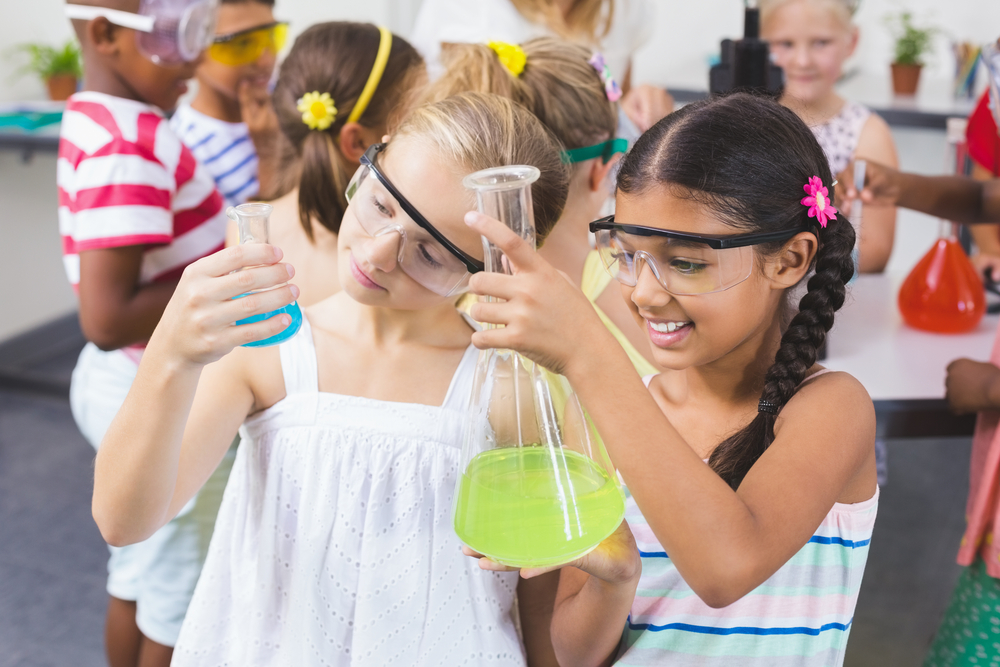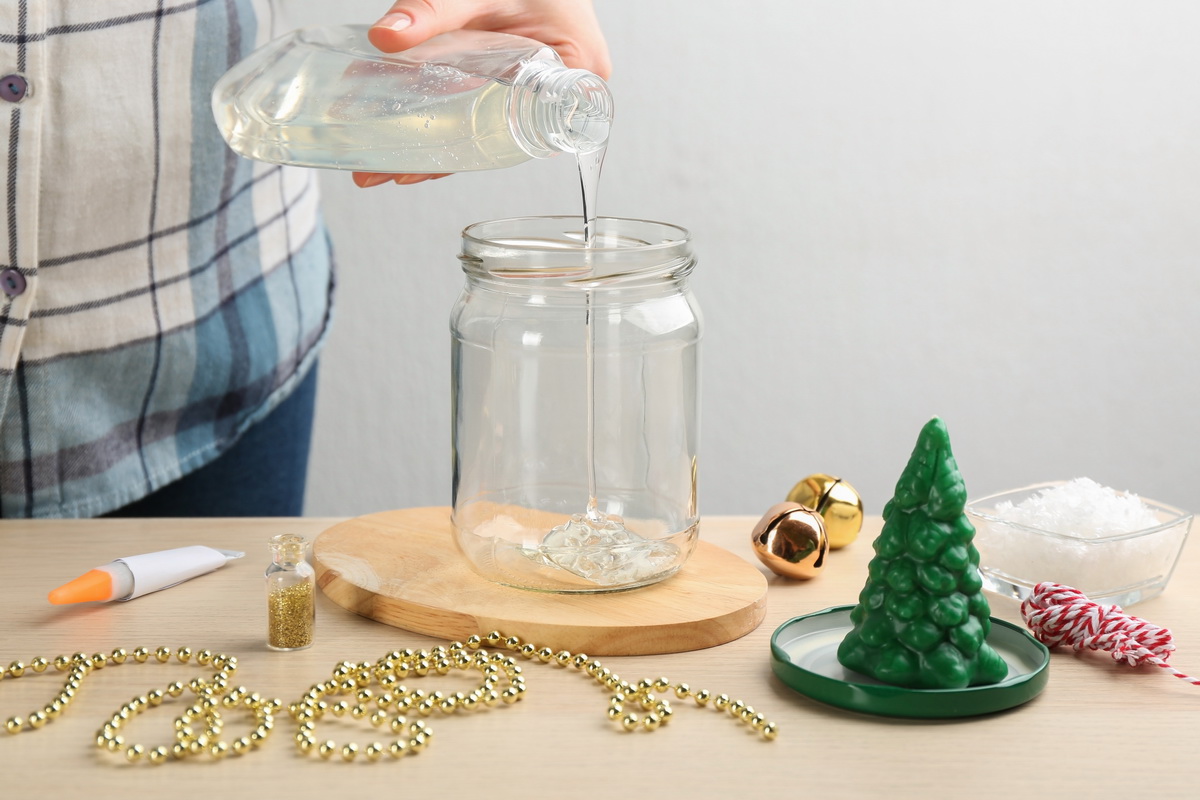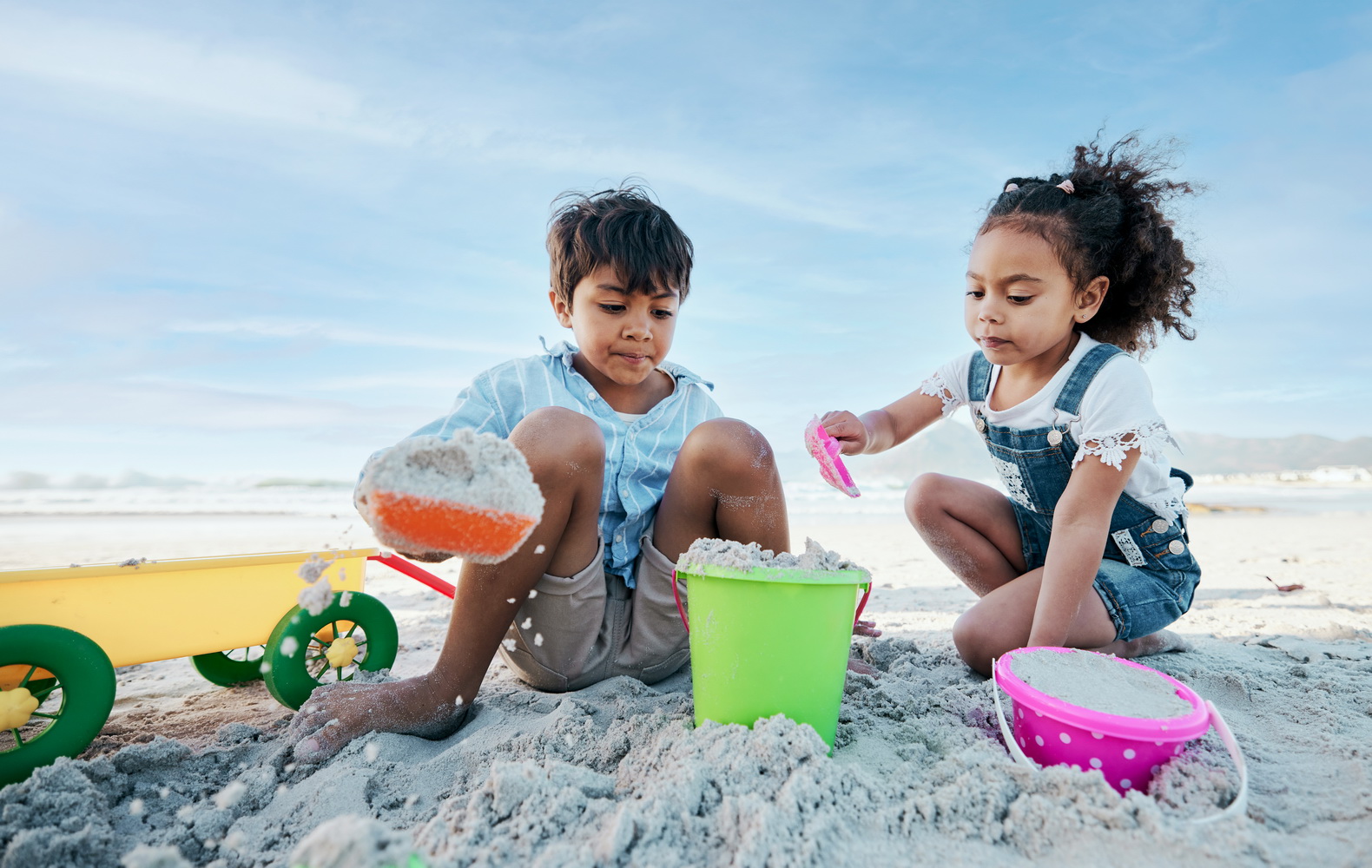Critical thinking development Normal Science Worksheets for Ages 4-8
7 filtered results
-
From - To
Enhance your child's critical thinking skills with our engaging Normal Science Worksheets, designed specifically for ages 4-8. These worksheets promote scientific exploration while fostering essential cognition, observation, and problem-solving abilities. With a variety of fun, age-appropriate activities, children will learn to make predictions, analyze information, and reason through lessons in nature and basic science concepts. Our resources are ideal for classroom use or at-home learning, helping young minds understand the world around them. Equip your child with foundational skills for lifelong learning, all while enjoying the process! Download and watch their critical thinking blossom today!
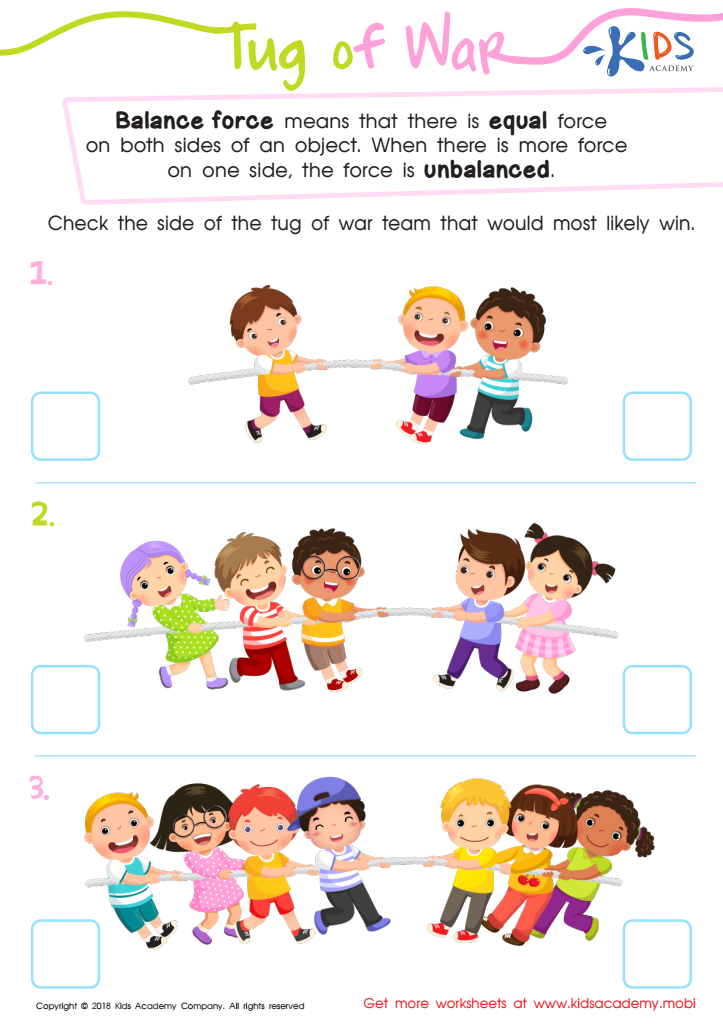

Balanced Forces Worksheet
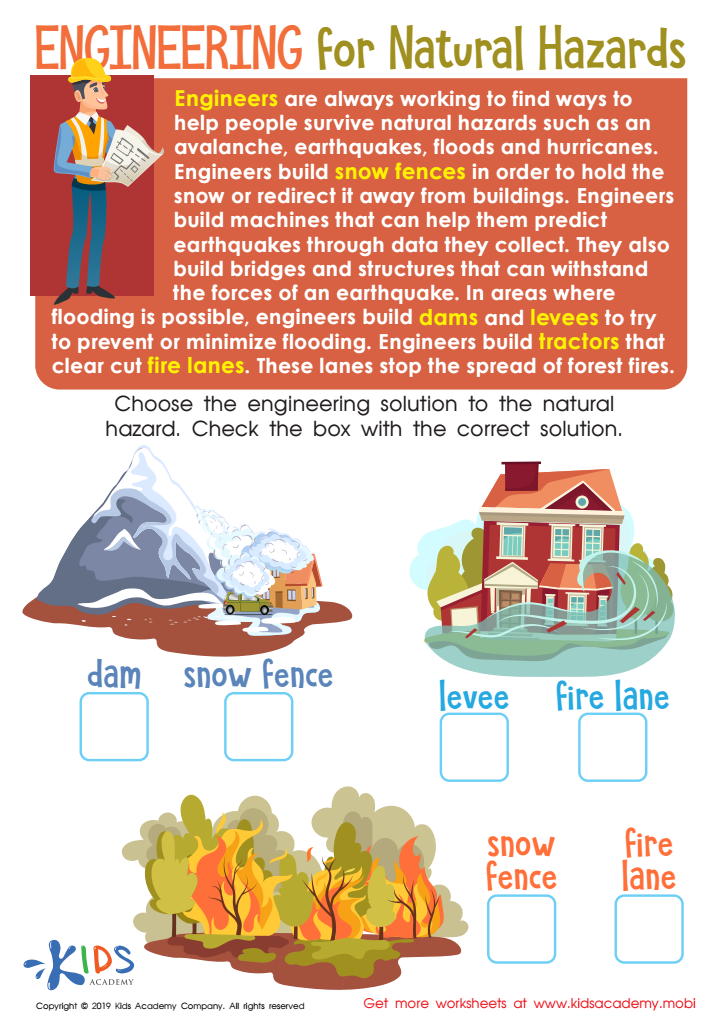

Engineering Natural Hazards Worksheet
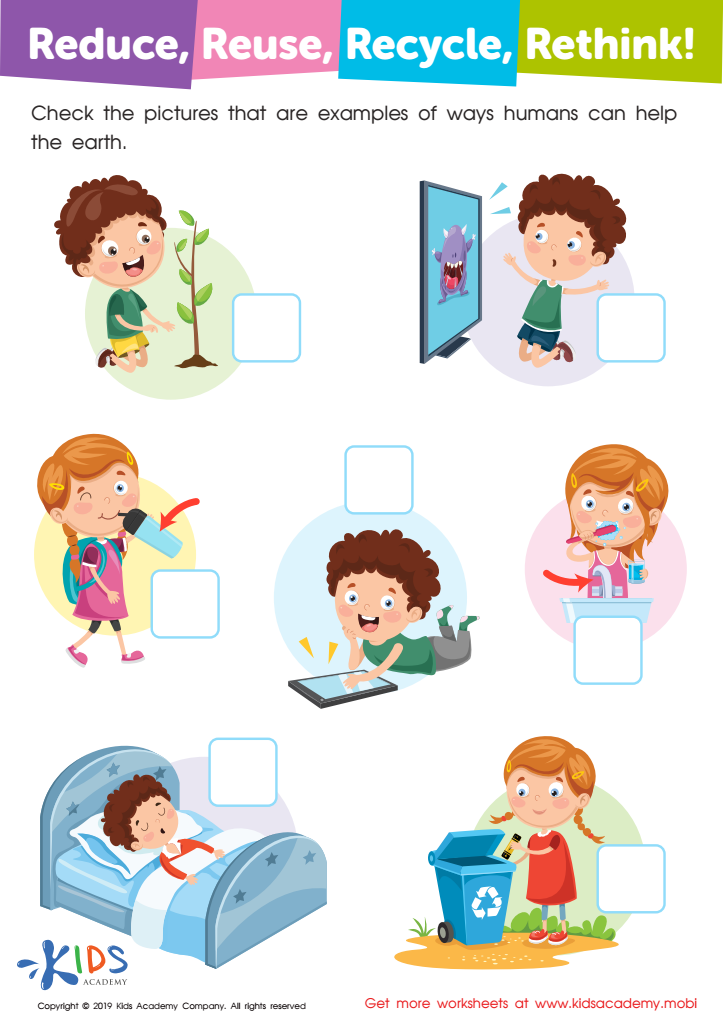

Reduce, Reuse, Recycle, Rethink Worksheet
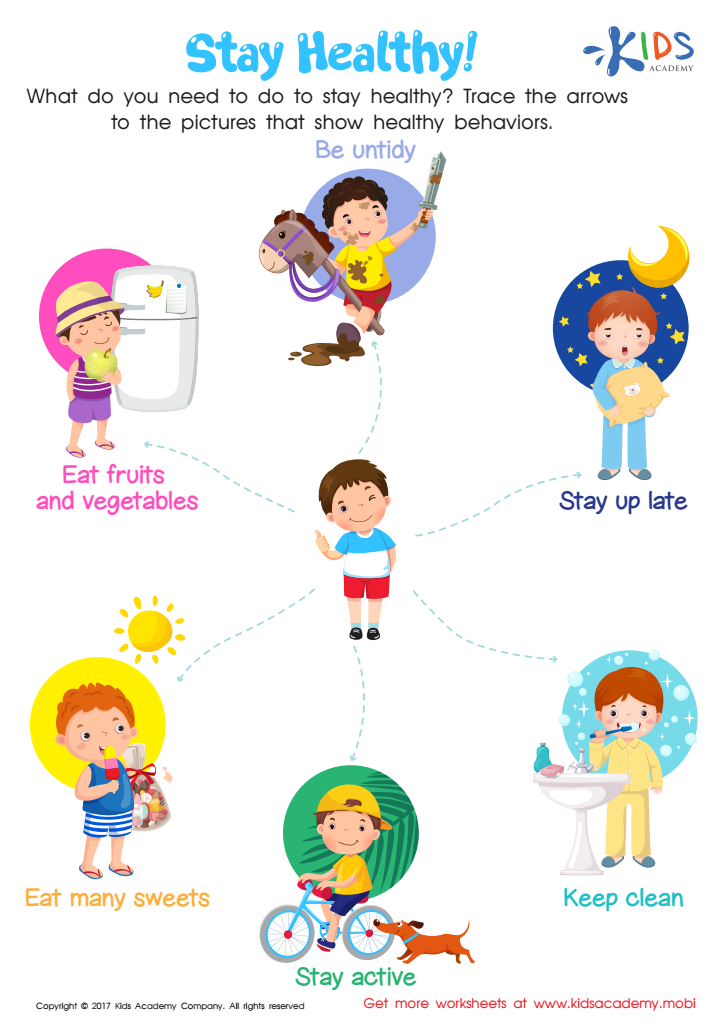

Healthy and Unhealthy Behaviors Worksheet
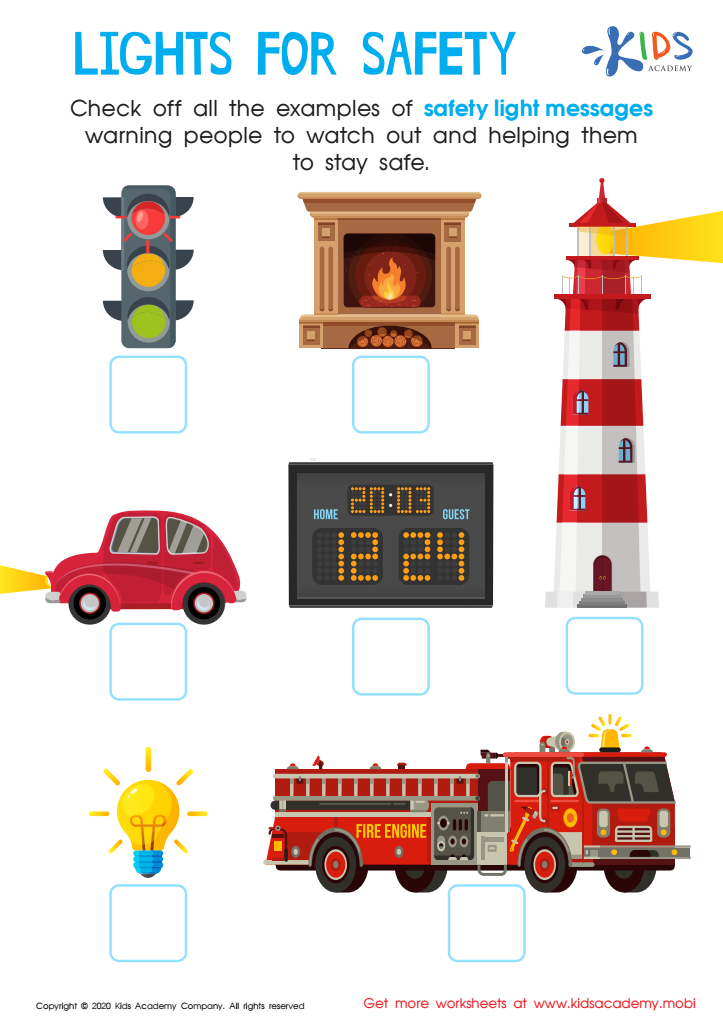

Lights for Safety Worksheet
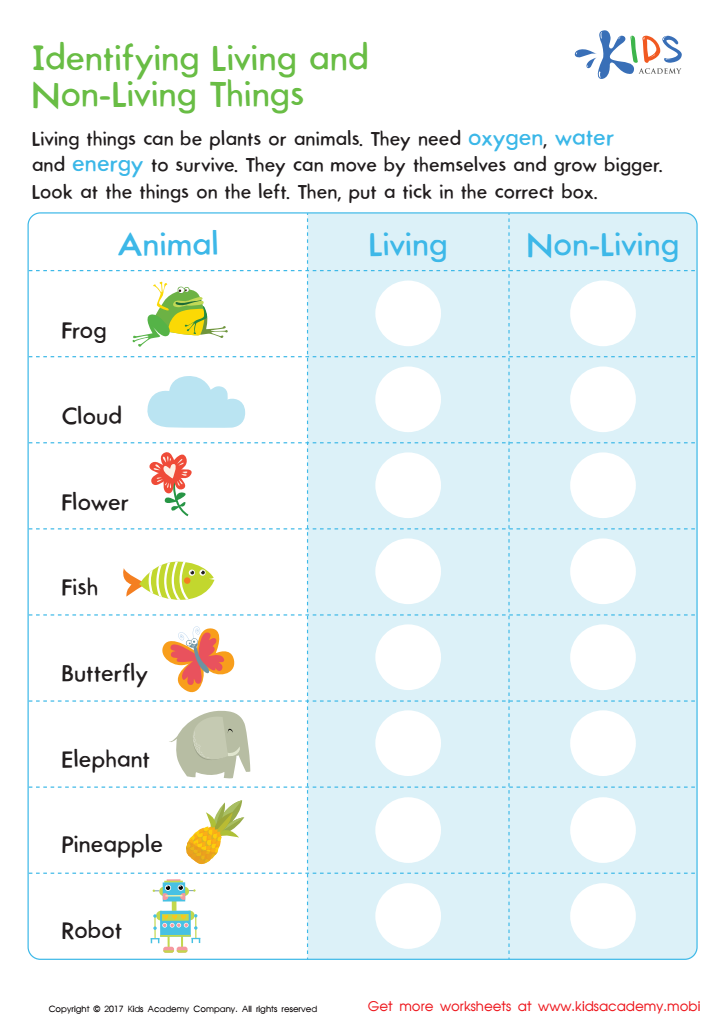

Identifying Living or Non–living Worksheet
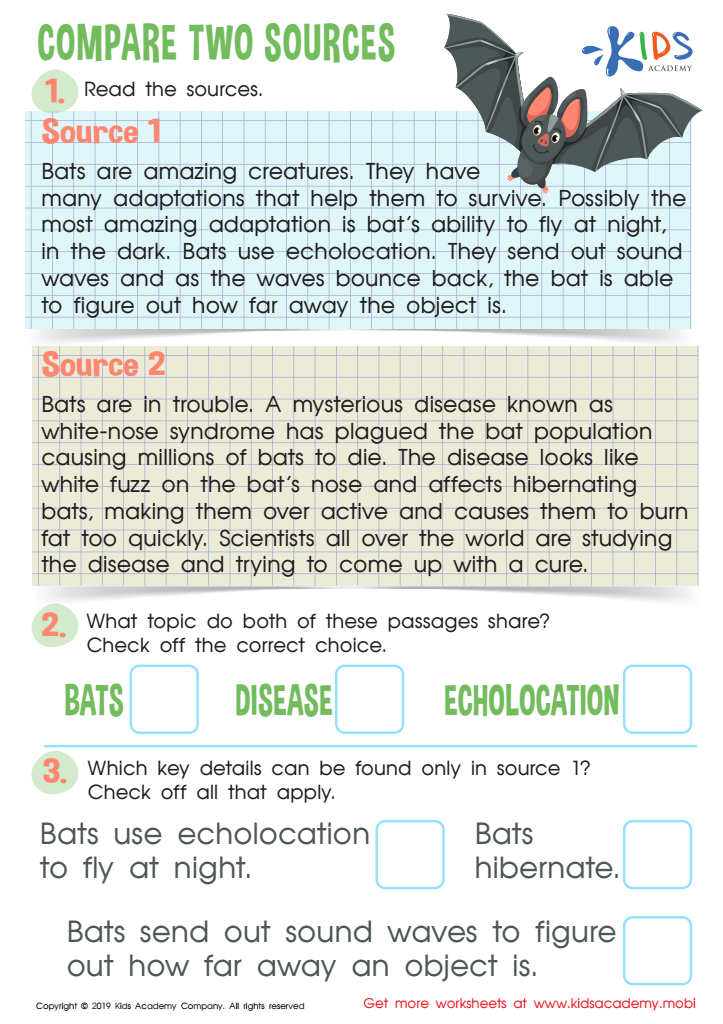

Compare Two Sources Worksheet
Critical thinking development in early childhood, specifically through the lens of "Normal Science," is essential for fostering young learners' cognitive growth. Parents and teachers should prioritize this skill from ages 4-8 because it lays the foundation for problem-solving and logical reasoning necessary throughout life.
At this stage, children are naturally curious and eager to explore their environment. Engaging them in activities that involve inquiry and exploration encourages not only the absorption of knowledge but also the questioning of information. By nurturing critical thinking skills, educators can guide students to explore hypotheses, conduct small experiments, and reflect on outcomes. This practice instills an understanding of the scientific method and promotes a mindset characterized by inquiry and skepticism.
Moreover, developing critical thinking abilities enhances children's literacy, numeracy, and social skills, enabling them to approach challenges with confidence. It further empowers them to differentiate between fact and opinion, fostering informed decision-making as they grow. Ultimately, investing in critical thinking at a young age cultivates lifelong learners equipped to navigate an increasingly complex world, encouraging curiosity and resilience. As such, both parents and teachers should champion educational practices that prioritize and enhance these essential skills in early learners.

 Assign to My Students
Assign to My Students



